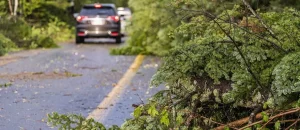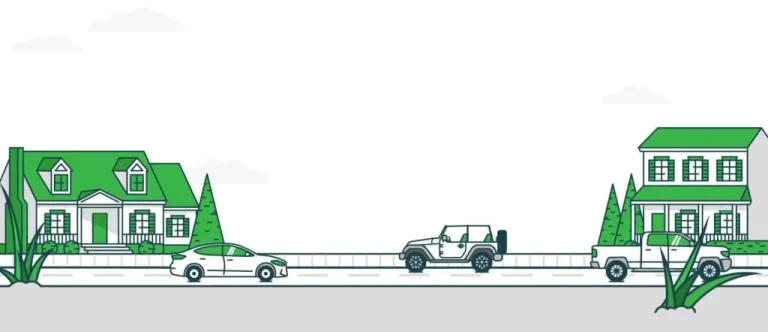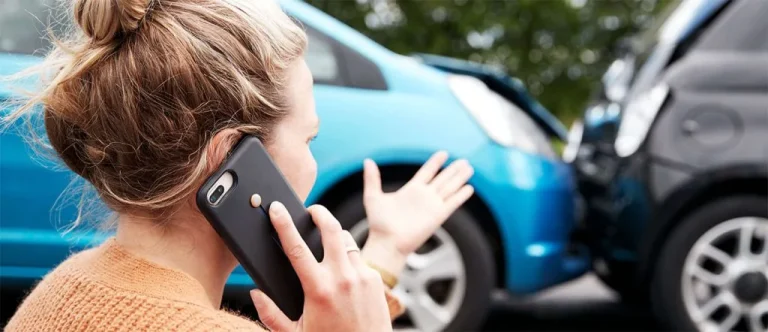Debris in the road is more common than you think. Road debris is especially hazardous when traveling on highways at high speeds and can cause costly vehicle damage.
Keep reading to understand when and how car damage from road debris is covered by auto insurance.
Is Hitting Road Debris Covered Under Comprehensive Insurance?
Yes, your car insurance should cover car damage from road debris. Your comprehensive auto insurance should cover you when a flying object hits your car. If you run over something in the road, your collision coverage will likely cover the damage. Deductibles apply in both cases, so the damage must be greater than your deductible.
Most drivers have full vehicle coverage, typically consisting of at least collision and comprehensive coverage. Collision coverage financially protects your car in an accident, whether at fault or not, and covers single car accidents if you crash on your own.
Hitting road debris lying on the road would be covered under collision coverage, especially if the debris causes you to swerve and collide with a tree, telephone pole, or guard rail.
Comprehensive coverage covers the value of your vehicle if it’s damaged by any source other than an accident. For example, comprehensive coverage can reimburse you if you suffer damage from fire, flooding, or theft. Flying objects hitting your car would also fall under this category.
In both cases, you’ll have to pay a deductible for the damage when filing your claim. A car insurance deductible is an amount you vow to pay before your insurance company picks up the rest of the damage. Deductibles are meant to act as a threshold, so people aren’t filing claims for every tiny bit of damage and to prevent fraud.
So, your car damage from road debris would need to exceed your deductible for your insurance company to reimburse you. You may not be eligible if the object just caused a minor nick or scratch. Common auto insurance deductibles are $500 and $1,000.
A cracked windshield may not exceed your deductible, but some auto insurers have specific coverage for windshield repair. This may cover you, so be aware if this is in your policy.
Also, note that having liability coverage only won’t help you after hitting road debris. Liability insurance is the type of car insurance you must have to drive legally. It only covers damage you can cause to other people, not damage you may suffer.
Getting more than your state’s minimum mandated amount of insurance is usually recommended, and you must have full coverage if you’ve leased or financed your car.
Is Hitting Road Debris an At-Fault Accident?
Unfortunately, many insurers consider hitting road debris an at-fault accident if the object was lying in the road. If a flying object hits your car, though, you may not be at fault. It varies by company, so you’ll need to ask your provider.
Many insurance companies may take the tough stance and believe that an object lying on the road was avoidable and may hold you at fault for running into it. This may vary by carrier, so you’ll need to check with your provider when filing the claim. Some companies may also have exceptions.
And, if you have been claims-free for a while, many carriers forgive a single at-fault accident, especially a relatively minor one like hitting debris on the freeway.
Whether you’re at fault or not is important because at-fault car insurance claims can raise your rates. Auto insurers believe that drivers with at-fault incidents are more likely to cause another issue than someone with a clean driving record who has never filed a claim.
Thus, insurance companies tend to charge drivers with at-fault accidents higher premiums to offset the increased potential for a claim. Know that collision and comprehensive coverage will kick in whether you’re at fault or not.
And, collision claims are more likely to raise your rates than comprehensive ones. This is because you can be at fault in a collision claim, not not for comprehensive claims.
Tips for Road Debris Insurance Claims
There are some steps you can take to file a successful road debris insurance claim, and there are some things you can do to avoid hitting road debris in the first place.
- File promptly. If you think something is wrong with your car after you run over an object, file as soon as possible. Letting the damage go on without inspecting or filing a claim could worsen the damage. Your insurer won’t want to cover any damage that could’ve been avoidable or pre-existing issues that you exacerbated.
- If a flying object hits your car after coming loose from a truck or vehicle in front of you, try to get the person’s license plate number. Also, you’ll need to file a police report if people in your car get injured by it. In this case, the driver of the vehicle where the object flew out could be held accountable for your medical costs and vehicle damage.
They may sound simple, but there are also some steps you can take to avoid hitting objects and filing road debris insurance claims in the first place.
- Drive slower, especially at night. This will give you more time to see the road in front of you and more time to react before debris on the freeway damages your car. Avoid tailgating.
- If you are transporting goods, secure the laid properly to prevent objects from falling off and hitting other cars.
The editorial content on Clovered’s website is meant to be informational material and should not be considered legal advice.




